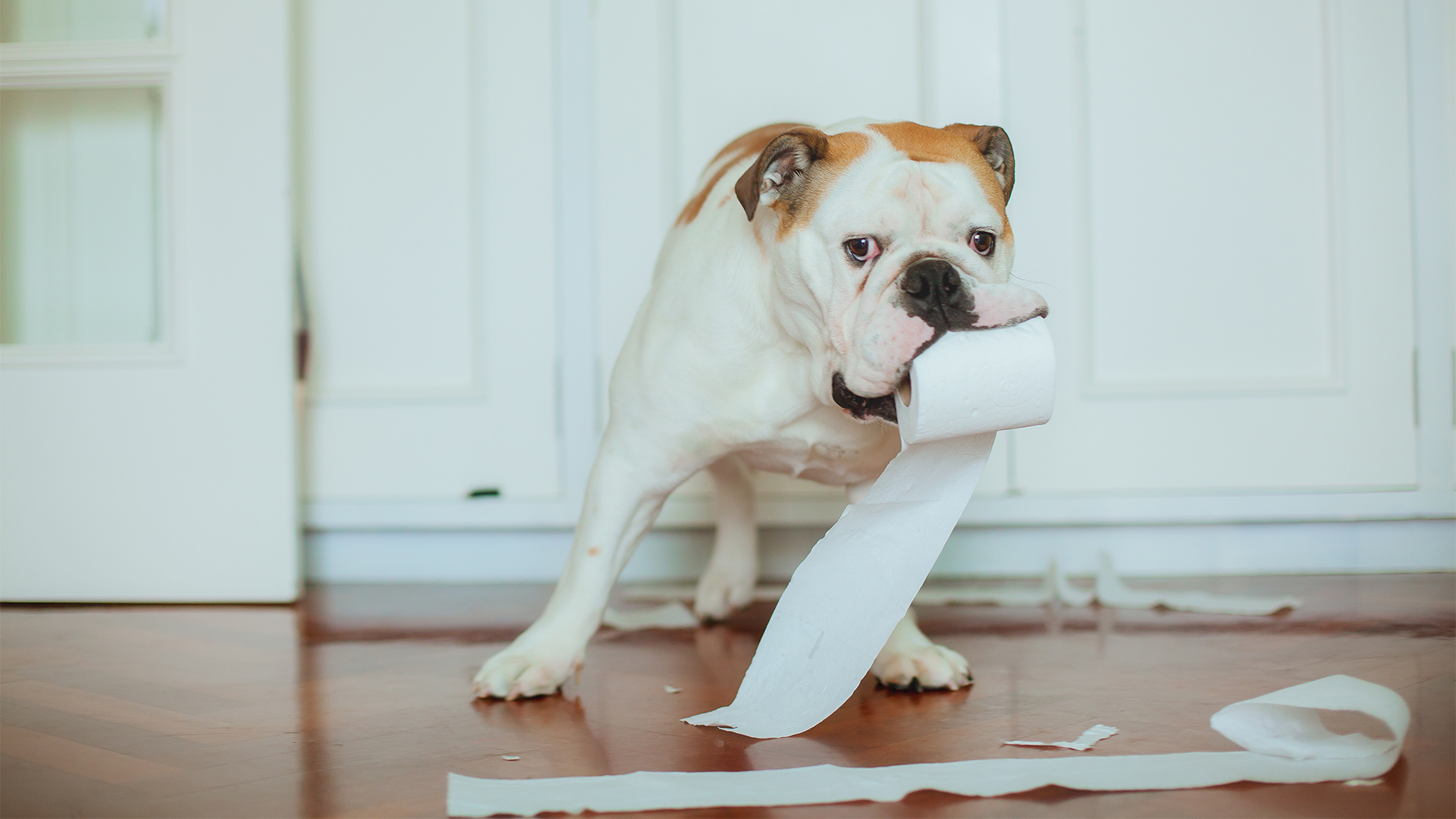
Why do dogs eat poop?
Poop eating is a natural behavior in dogs; although it may disgust humans, it usually poses no threat to your canine's health.

While dogs may be man's best friend, it's hard to avoid judging Fido when he gets into his own feces.
A 2018 study published in the Journal of Veterinary Medicine and Science surveyed about 1,400 dog owners in the United States and found that 23% of dogs had eaten poop at least once and 16% were "frequent" poop eaters who ate poop at least six times over the course of the study.
But why do dogs eat poop, and is it harmful to them?
Dogs eating their own poop — a condition called coprophagia — is considered a natural behavior. It's not a form of attention seeking or a result of nutritional deficiencies. Instead, veterinarians think coprophagia in dogs stems from their evolutionary connection to wolves, as wolf mothers eat their pups' poop to avoid exposing them to intestinal parasites.
Wolves will eat the feces of their young during the first three years of life, veterinarian Dr. Nicholas Dodman, president of the nonprofit Center for Canine Behavior Studies and a professor emeritus at Tufts University Cummings School of Veterinary Medicine, told Live Science. In fresh poop, the eggs of various parasites are not yet infectious. If let to sit, the parasites can grow and infect the pups if ingested.
"You're more likely to survive if you're healthy than if you're … ridden with worms," he said.
Related: Could dogs survive without humans?
Sign up for the Live Science daily newsletter now
Get the world’s most fascinating discoveries delivered straight to your inbox.
Even though domesticated dogs have come a long way from the wolf den, "I think the important takeaway is that it's no risk; it's just disgusting to us because of our upbringing," Dodman said.
Which dogs eat poop?
Certain dog breeds might be more prone to coprophagy, the 2018 study found. Shetland sheepdogs had the highest rate of coprophagia (41%), while no poodles were reported as poop-eating. A dog's sex is also linked to its tendency to eat poop. A 2019 study conducted by Dodman and colleagues and published in the Journal of Veterinary Behavior looked at the behavior of over 4,000 dogs. They found 11% of male dogs engaged in poop eating, while 16% of female dogs did. Interestingly, coprographia was twice as common in dogs that were neutered than in dogs that were not neutered.
As for why dogs eat the poop of other animals, like cats and rabbits … it's just tasty, Melissa Bain, a veterinary behaviorist at UC Davis Veterinary Medicine and co-author of the 2018 study, told Live Science. Cats eat a high-protein diet, so their stool might be particularly delectable to dogs, she said.
How do I get my dog to stop eating poop?
Even if it's not harmful to your pooch, there's no denying that people are repulsed by poop eating. So is there anything you can do to get your dog to stop?
Several commercial products are marketed for getting dogs to stop eating poop, but these have not been proved effective. Bain's 2018 study looked at 11 food additives marketed for coprophagia and found that the effectiveness of these products ranged from zero to 2%. "Don't waste your money," she said.
The internet is full of home remedies to stop coprophagia, like adding breath mints or pineapple to a dog's food. But there's no evidence that this works for most dogs, either. "You'll probably find someone who says they think it worked in their dog," Dodman said. "But basically, it's not a strategy that you can rely on."
In his veterinary practice, Dodman has tried diet changes that alter the consistency of a dog's poop and stop coprophagia. Brands like Hills RD or Purina OM have between about 14% and 16% fiber, according to their websites, which is much higher than in commercial dog kibble, Dodman said. The result is a dog stool that's more like cardboard, he said.
"If you change it to be less palatable, if you can imagine that, and more … dry and cardboardy, that seems to work," Dodman said, although he has not tested this in clinical trials.
What does work? "Clean it up," Bain said, and give the dog no time to munch on its feces. Some owners may try sprinkling Tabasco sauce or cayenne pepper on a dog's poop to deter them from eating it. "But if you're going to do that," Dodman said, "you might as well pick it up."

Hannah Loss is a science journalist based in Boston. She covers the environment and has written for Scientific American, Sierra and Inside Climate News. Hannah graduated from Tufts University with a B.A. in English and environmental studies. She received a Master's degree in journalism from NYU's Science, Health and Environmental Reporting Program.









